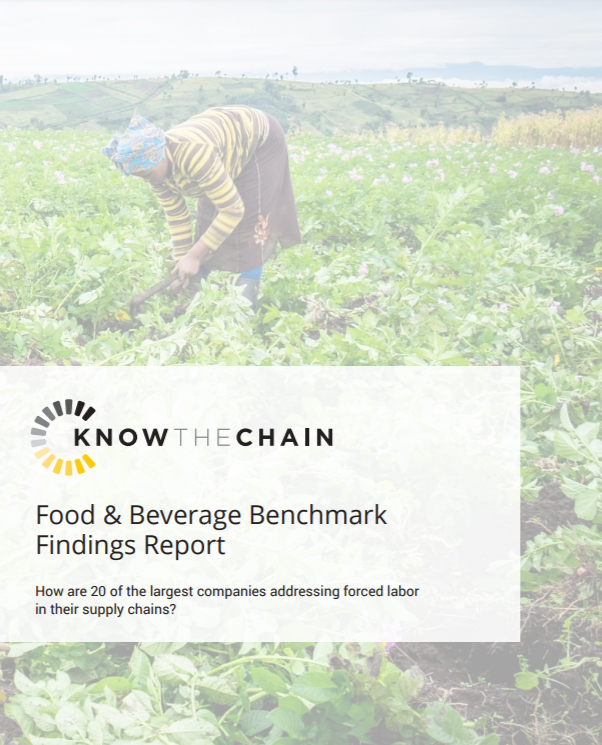The food and beverage industry is an at-risk sector. Forced labor occurs both in the production of raw materials and during the food processing stages of food and beverage companies’ supply chains. Food commodities are produced by agricultural workers who often come from vulnerable groups such as women, international migrants, and internal migrants with little education. Weak labor laws and law enforcement in the sector, together with isolated workplaces where housing tends to be provided by the employer, aggravate the typically poor working conditions and can leave workers vulnerable and dependent on their employer.
Companies that are included in this benchmark can use it as a tool for internal and external engagement with relevant stakeholders to drive improvements in their operations. All companies—including any company in the food and beverage sector—can use the findings and recommendations to identify good practices and assess areas where they may need to pay greater attention to forced labor risks.

